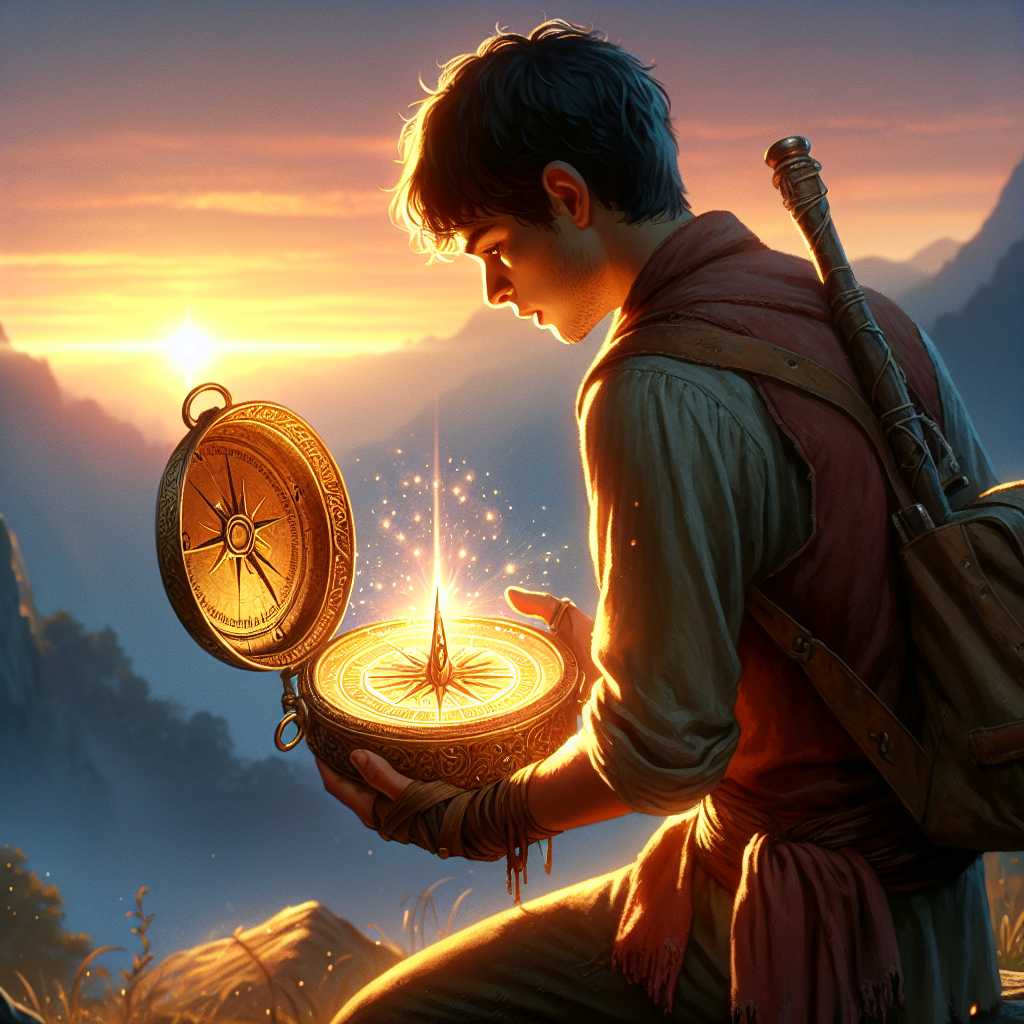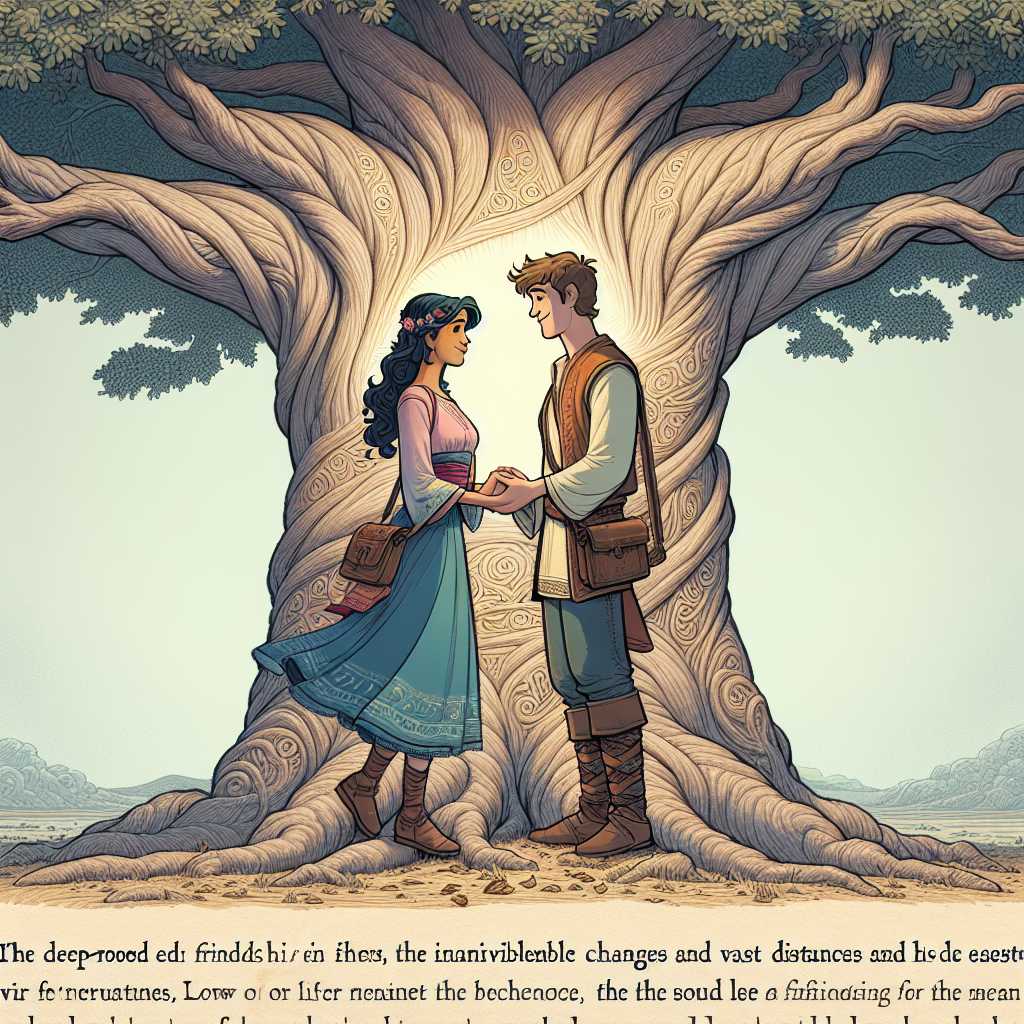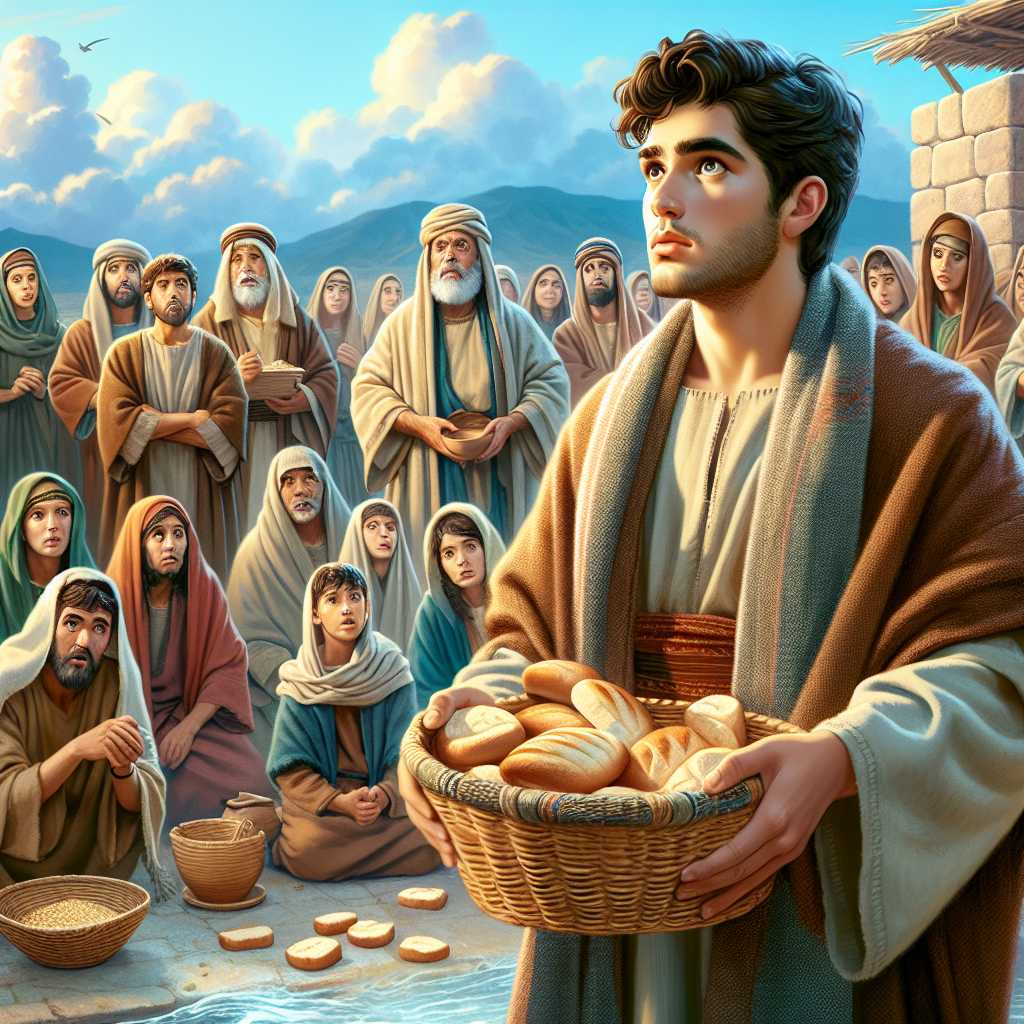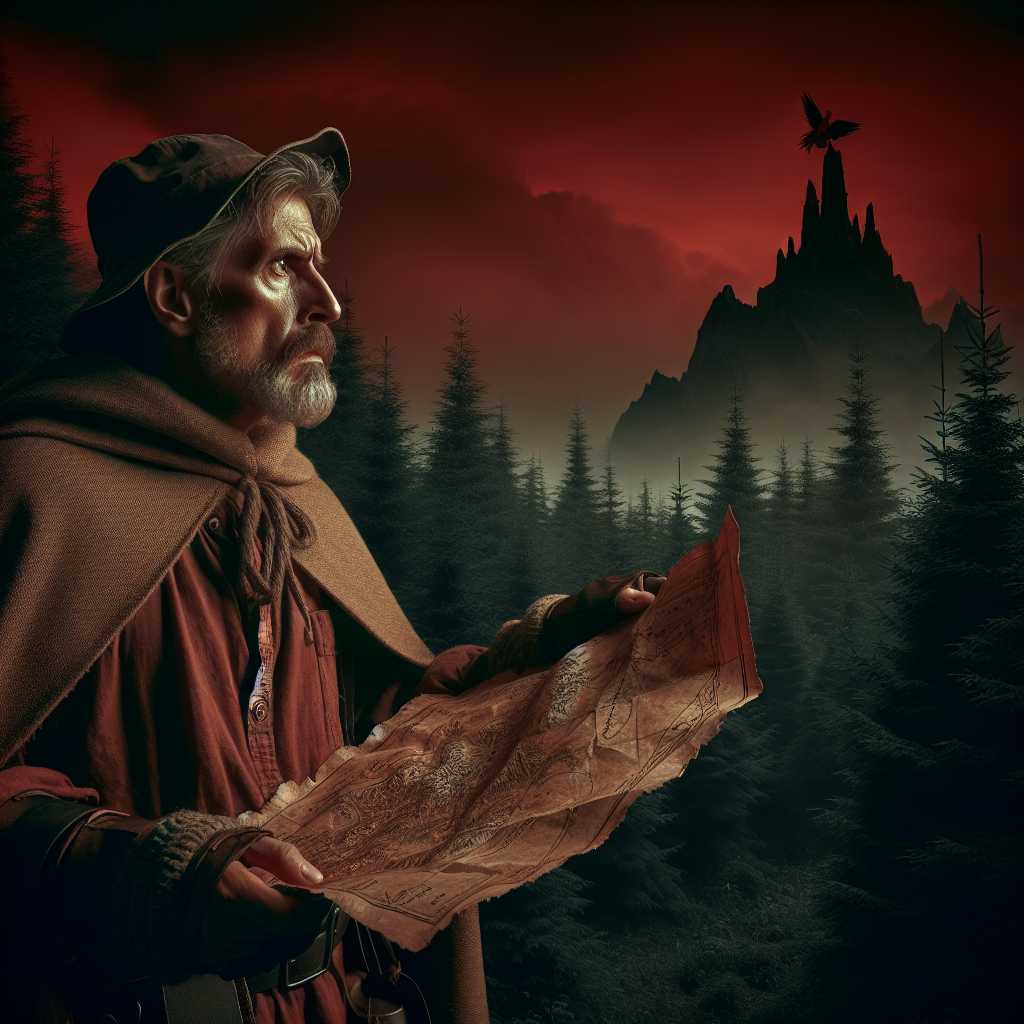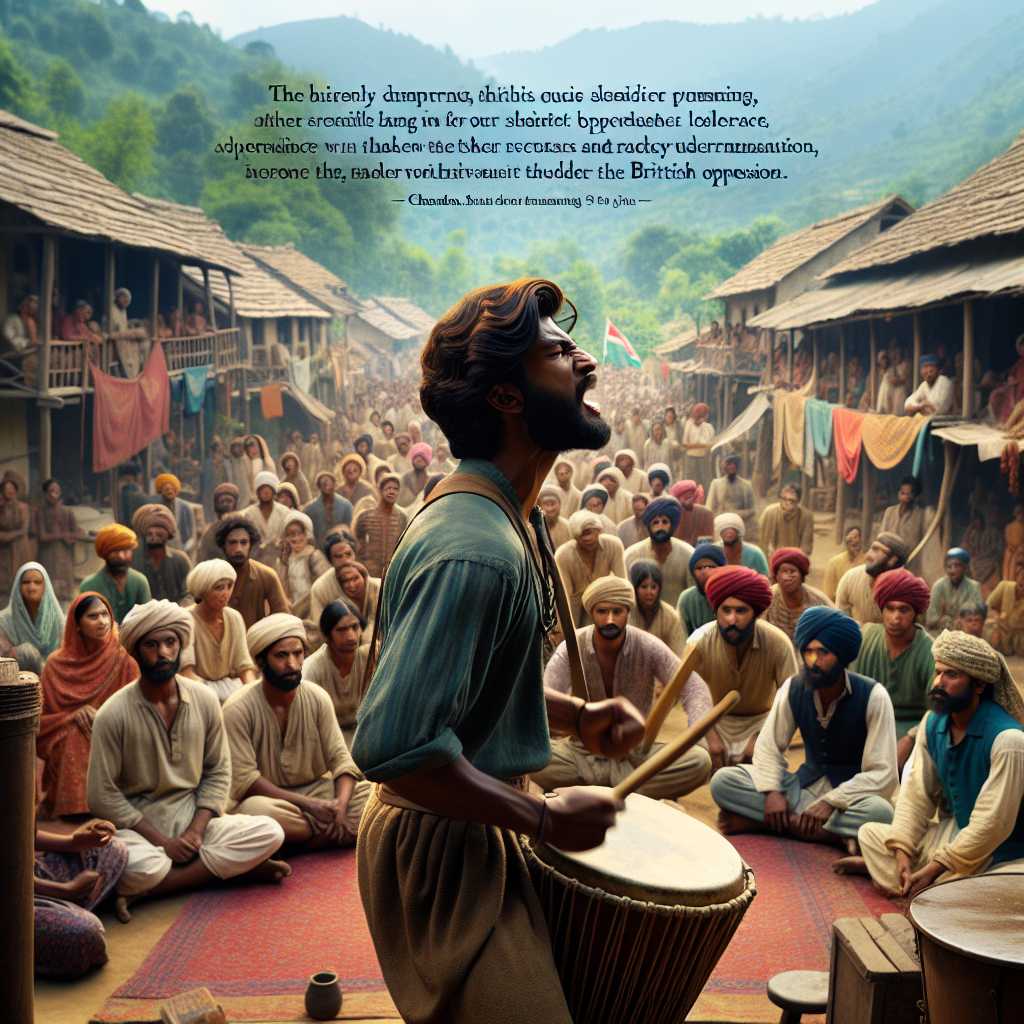
In the lush evergreen mountains of Kerala, where the thick forests whispered secrets to the gentle monsoon rains, there thrived a small village named Thulavadi. The year was 1857, a time when India was charged with murmurs of rebellion against the British rule. Thulavadi, however, lived in relative peace, nestled comfortably within the embrace of nature, where men respected the land, and the land provided in return.
At the heart of Thulavadi was the elderly storyteller, Vasudevan. Acclaimed for his vivid imagery and enchanting tales, Vasudevan's words were considered the lifeblood of the village. Every evening, after the day's labor was done, villagers, both young and old, gathered around the flicker of oil lamps to hear him spin tales of old.
One such night, with the crickets singing an eerie backdrop, Vasudevan decided to narrate the story of a forgotten hero, a brave soul whose rhythm remained etched in the stone pathways of their village. Clearing his throat, he began, "Dearest children of Thulavadi, let me tell you the story of Chanden Marakurran, the drummer whose silence sparked a revolution."
"Long, long ago, before the British began erecting their posts in our lands, Chanden was known far and wide not just for his drumming prowess, but for his heart which beat in time with the very pulse of the earth. His drums spoke languages, and his rhythms were tales themselves, bursting with life, hope, and freedom. Traveling minstrels sang praises of his prowess, and it was said that when Chanden played, the God of Rain himself shed tears of joy."
Vasudevan looked around at the wide-eyed children, catching the glimmer of anticipation in their eyes before continuing, "Chanden's fame reached the ears of the British Commandant stationed in the nearby town of Munnar. This commandant, a harsh man named Colonel Blackwood, believed in the maxim of fear. He knew the power of music to ignite a heart with courage, something he could not risk amidst the growing unrest."
"One fateful day, draped in his arrogance, Blackwood summoned Chanden to his quarters. 'You will cease your drumming,' he said with an air of finality, 'for it incites the villagers and threatens the crown's peace.' Chanden, who loved his land and people more than even his drums, refused. His silence, a greater retort than any words could convey, angered Blackwood."
"The Colonel, with a dismissive wave, ordered, 'Then you shall drum no more!' And with those words, he snapped Chanden's beloved drum over his knee."
Gasps erupted from the listeners, the younger ones clutching at each other. "But this forced silence," resumed Vasudevan with a more somber tone, "was but the beginning of the symphony. Stricken yet undeterred, Chanden returned to Thulavadi. Over the ensuing weeks, he began to craft myriad drums, each one singing the silent hymns of freedom. Every villager played their part, each contributing a piece of wood, cloth, or offering a prayer for strength."
The storyteller paused, lifting his aged gaze toward the darkened shapes of the mountains beyond, as if seeking the echoes of those forgotten rhythms. "Chanden’s silent rebellion burned brighter until it reached a zenith. The villagers, unified by the rhythm of silence and strengthened by their resistance, decided to take a stand."
"One storm-laden night, with thunder lending its profound cylinder to the crescendo, Chanden led his people to the fringes of Munnar. The army of villagers, percussion instruments tied around necks, hips, and backs, marched in unison. The forests echoed with footsteps, not a beat out of place — save for the thumping heart of a once-silent drum."
Vasudevan's voice rose with enthusiasm, "And that night, without striking a single drum, they broke the silence. The rhythm of their march became the loudest boom on that battlefield. It frightened the Colonel’s soldiers, who fled before the sight of a fearless unity, fearing not mortality but mortality’s taunt in the echoes of silence."
"Though Chanden was taken and subdued, his legacy was not to be sullied. For each villager took the memory of that silent drum to heart, carrying its rhythm forward in whatever they did. And thus did a quiet revolution begin, from the silent drum beats of Chanden Marakurran."
A silence fell over the gathered, a respectful accord to the story's conclusion. The wind howled softly, rustling the leaves, as if whispering its approval.
"The echoes of bravery," concluded Vasudevan, his aged eyes surveyed the captivated faces before him, "resonate far beyond any act of silence or might. And so, dear children, let us remember that story, for it is our history etched in rhythms that continue to thrive, even in times of silence."
And with that, the village of Thulavadi, nestled in its verdant serenity, carried the whispers of the winds and the silent drumbeats in the heartbeats of its people, ensuring that the courage of a single man echoed through the generations.




